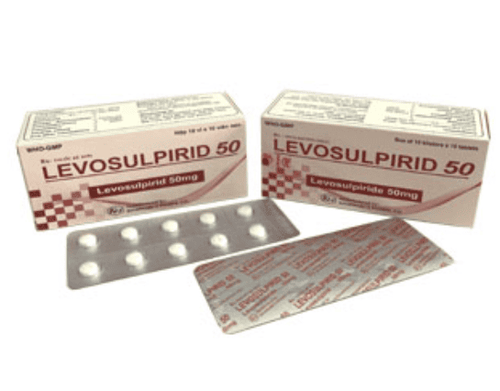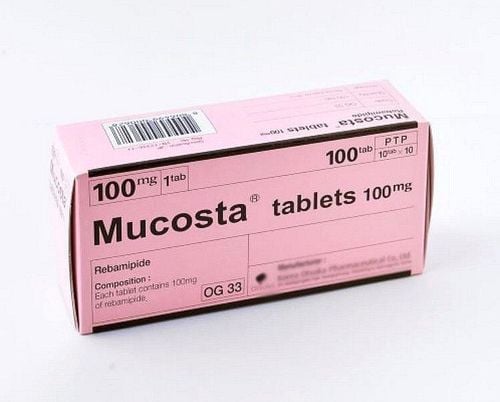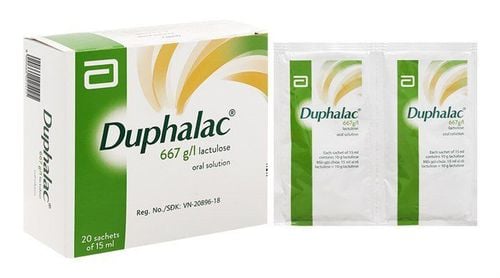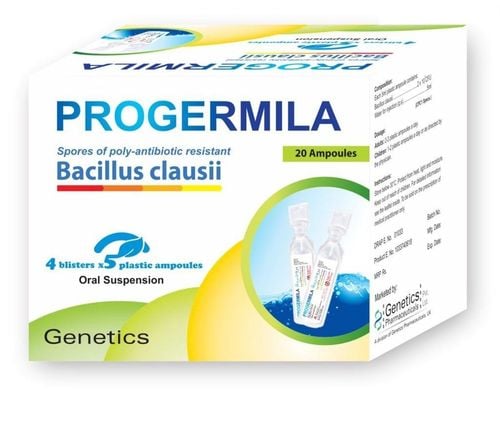This is an automatically translated article.
The article is professionally consulted by Doctor Nguyen Thai Ngoc Chau - Department of Pediatrics - Neonatology - Vinmec Phu Quoc International General Hospital.
Intestinal dysbacteriosis in children is an imbalance between good bacteria and bad bacteria in the intestines. Supplementing beneficial bacteria through microbial products, improving the diet and overcoming the cause of the disease is the basic treatment when the baby has a prolonged intestinal dysbiosis.
1. What is intestinal dysbiosis in children?
Intestinal dysbacteriosis in children is an imbalance between good bacteria and bad bacteria in the intestines. Normally, in the human intestinal tract, there is a symbiotic flora with 500 - 1,000 different species, of which 85% are beneficial bacteria and 15% are harmful bacteria.Normally, when the ratio of beneficial bacteria and harmful bacteria is in balance, the process of digestion and absorption of nutrients, and elimination of harmful substances, will inhibit and neutralize the effect of bacteria that cause diabetes. intestine.
However, in some cases, the above ratio is broken. At that time, children have intestinal dysbacteriosis because the amount of beneficial bacteria decreases, and the harmful bacteria increase.
At this time, children often have raw stools, loose stools, sometimes with a little mucus and blood. Your child may have discomfort due to a feeling of fullness in the stomach, even a low-grade fever. In particular, intestinal dysbacteriosis in infants often makes parents more worried, because the intestinal microflora is not yet as complete as adults.
When this situation is encountered, it is necessary to properly handle the child to help the child recover quickly, avoid letting the child lose a lot of water, which will cause electrolyte disturbances, exhaustion and malnutrition, and avoid repeated relapses.
2. What to do if the baby has a prolonged intestinal dysbacteriosis?
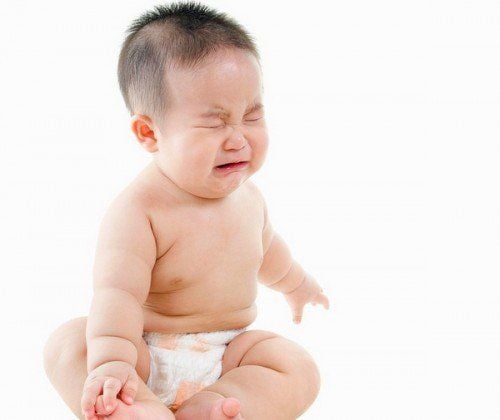
Antibiotics kill both harmful bacteria and beneficial bacteria in the digestive tract, leading to more severe intestinal dysbiosis in children. In fact, there are many cases of dysbacteriosis in young children due to the influence of long-term and high-dose antibiotics to treat pharyngitis, tonsillitis, pneumonia,... Therefore, taking drugs Children must be extremely careful, exactly as prescribed by the doctor to avoid dangerous complications.
Treatment of intestinal dysbacteriosis in young children includes supplementing beneficial bacteria through microbial products for children, changing the diet and overcoming the cause of dysbacteriosis in young children.
2.1. Microbial preparations For the treatment of intestinal dysbacteriosis, it is possible to use microbial products that are benign and beneficial to health.
Live probiotics help increase the number of beneficial bacteria in the intestinal microflora, build a balanced immune system, thereby overcoming the child's dysbacteriosis.
Moreover, digestive disorders affect the ability to digest and absorb food, easily causing exhaustion for children. While waiting for the intestinal enzymes to recover, probiotics also help children absorb better during illness, thereby avoiding the risk of exhaustion, stabilizing the immune system and protecting children.
Should choose probiotics from reputable manufacturers, a variety of beneficial bacteria strains will help re-establish the balance of the microflora faster. The recommended probiotic strains are Lactobacillus, Bacillus subtilis, Bacillus clausii and Saccharomyces boulardii... Probiotic products for children should be one with an attractive taste that will make it easier for children to take yeast.
However, which probiotics to take, the microbial content of the product, as well as the best oral dose for each child, should be guided by a pediatrician to ensure effectiveness.
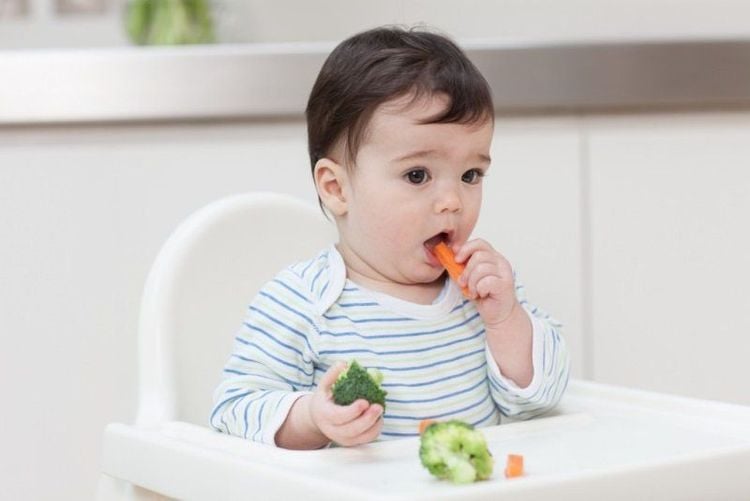
Eliminate the cause of the dysbacteriosis if any. Easy-to-absorb nutrition helps children avoid exhaustion. Some measures can be applied:
Do not give your baby a lot of sweets. If the baby is still nursing, the mother should continue to breastfeed normally, while the mother must also abstain from eating sweets. If the baby has to eat formula milk, the mother should choose lactose-free milk (lactose free). Children's meals need to be full of nutrients and energy. Children should eat easily digestible foods such as: chicken, lean pork, yogurt, soy milk, pumpkin, carrots, bananas, peppers, etc. sapodilla... should replace fat with cooking oil. Avoid giving your child hard-to-digest foods such as corn, whole beans, and high-fiber foods. In addition, children can drink apple juice, pureed sapodilla, mashed banana. Pay attention to food safety and hygiene. Children should not be on an excessive diet: Many parents put their children on a diet, do not feed them with fat, so they cannot absorb vitamins and do not excrete digestive juices to absorb nutrients from food. feces are usually live. Ideally, the main meals still need to ensure enough 4 food groups: starch (rice), protein (fish meat, eggs, milk), fat and vitamins (from vegetables), in which chicken should be noted. minced lean meat and carrots in porridge is very good for children with diarrhea and prolonged raw stool. Infants should not be introduced to solid foods before 6 months of age: starch is digested by amylase and ptyalin enzymes in saliva, but saliva must not be secreted until 6 months of age. It is still possible for children to learn weaning but should be limited. Baby 11 months old, can give your baby more yogurt will stimulate appetite and easy to digest. 2.3. Overcoming the cause of dysbacteriosis in children In case the child needs to be treated with strong antibiotics or for a long time, the child has had gastrointestinal disorders before, parents should consult a doctor for further advice. early remedial action. In case the child's condition still has diarrhea, raw stool does not improve despite the application of the above measures, it is necessary to take the child immediately to the pediatric gastroenterology specialist for examination to avoid unfortunate consequences.
At the Pediatrics Department of Vinmec hospitals nationwide, children with gastrointestinal disorders will receive clinical examination and gastrointestinal ultrasound, stool test, etc. to find the exact cause and detect the symptoms. Other abnormalities if any and promptly treated. With a team of experienced and dedicated Pediatricians and professional customer care services, parents can rest assured when bringing their children to Vinmec for medical examination and treatment.
Please dial HOTLINE for more information or register for an appointment HERE. Download MyVinmec app to make appointments faster and to manage your bookings easily.






